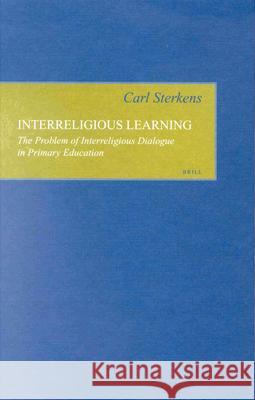Interreligious Learning: The Problem of Interreligious Dialogue in Primary Education » książka
Interreligious Learning: The Problem of Interreligious Dialogue in Primary Education
ISBN-13: 9789004123809 / Angielski / Twarda / 2001 / 282 str.
The increasing plurality of religions and world-views in western society has major implications for religious communication in both public and private settings. This study is an important step in an exploration of the consequences of this religious plurality for religious education in primary education. The chief concern of this study is the following question: To what extent is a pedagogic model in which pupils are encouraged to participate in an interreligious dialogue adequate for coping with this religious plurality? To address this question, the author discusses the following research questions: what are the cognitive, the affective and the attitudinal effects of the interreligious model for religious education, and can this model be legitimised? These questions are considered in the context of a discussion of the meaning of religion and an elaboration of the aim of religious education within the context of a secularized and multicultural society.











